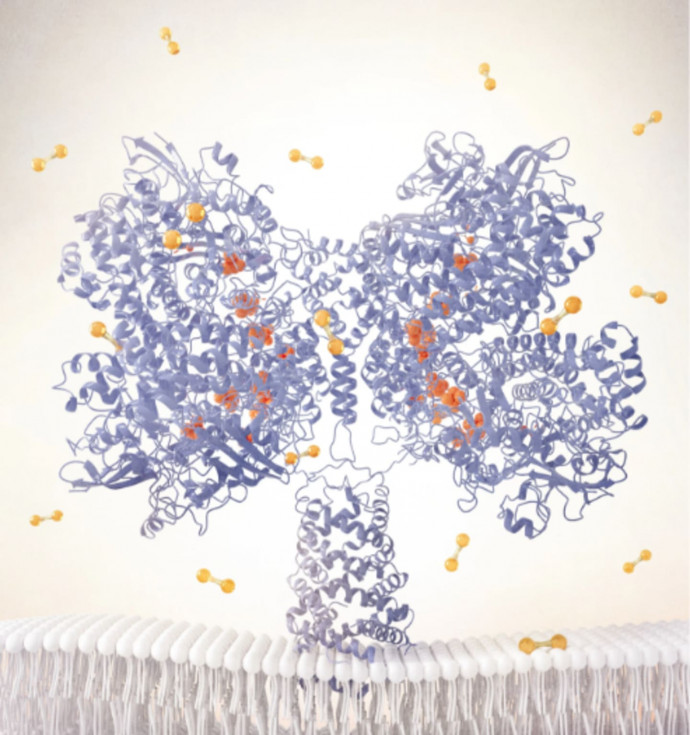Research
Published 14 April 2023New tech could offer air-powered energy source

Scientists have discovered a tool bacteria use to extract energy from hydrogen in the air, and say it could pave the way for clean electricity generation.
New Zealand and Australian scientists working on the project have had their work published in the peer-reviewed scientific journal Nature.
University of Otago Distinguished Professor Greg Cook was part of the study, and told Morning Report that it had been known for some time bacteria in the soil were able to get energy from hydrogen in the air, but not how they did it.
The first step in the research was to discover the type of bacteria in the soil that was extracting energy from hydrogen.
Then, they worked to find which chemical enzyme that bacteria was using to make the oxidation reaction happen to air molecules - causing energy to be released.
The researchers have now discovered the detailed structure of the protein enzyme the bacteria uses for the reaction, and how the reaction works.
And they believe producing this enzyme in laboratories would allow it to be used to carry out the same oxidation reaction, to generate clean energy that could be harnessed as electricity, with water as the only by-product.
"For about 50 years, we knew that soils were responsible for oxidising atmospheric hydrogen. With help from the Marsden Fund we basically isolated the organism from soil that was doing that," Cook said.
"We were able to use genetics to then find the genes responsible for the enzyme and then another ten years later, we've actually solved the high resolution structure of this enzyme.
"We now have a molecular blueprint that basically shows us how the enzyme is able to extract hydrogen at picomolar concentrations from the atmosphere, and then use that hydrogen to basically energise bacteria."
Cook said there had been a lot of interest in the project, and they were now working on the next steps.
"So now, if you extrapolate a bit further we could actually take this enzyme and use it to ... produce energy basically, in a hydrogen fuel cell.
"It's a very good energy source for bacteria, and all we're doing is we're just exploiting those protein [enzymes] to basically generate energy for our own purposes."
Enzymes are a type of protein.
The next phase of testing would demonstrate whether a man-made process using this enzyme could work.
"The goal now would be to produce this enzyme at a level where we can start to build lab-scale reactors where we can basically take it further and really have proof-of-principle studies, that the protein [can be used this way] ... that this protein when fed atmospheric hydrogen could deliver protons and electrons to basically make energy and store it," Cook said.
"That's the next exciting phase, which will require some major advances in ... scaling up the production of this protein."
Researchers at the University of Melbourne had already started on the next scaling-up step.
Newly discovered reaction could be used for hydrogen fuel cells
Hydrogen fuel cells are a relatively new and rapidly developing technology that is already in use. The team hopes their work could lead to a new approach to this technology.
"If we think about this process in terms of making hydrogen fuel cells, at the moment we use technology that involves platinum, which is a very rare earth metal, it's expensive, there's a limited supply. That reaction also also requires valuable drinking water," Cook said.
"So now we have a system where we can use a protein that we can basically produce in a lab or in some factory, that we can then use to take that hydrogen and convert it into energy.
"Obviously [with] the energy crisis we're facing, we know we need things to supplement solar, hydro and wind. [This] won't be a stand-alone technology, but it'll synergise with those technologies.
"And if you look at the global warming and the crisis we're going through - this is really important tech.
"So I think there'll be a lot of interest, a lot of investment."
The hydrogen used in the reaction is simply drawn from the air.
"It's the air that you're breathing - this is the amazing thing - this enzyme in its structure, its designed to extract the hydrogen from the atmosphere," Cook said.
Ancient biochemical process put to new use
Cook said it was exciting to think a process that had been used for aeons in nature could be harnessed by humans to help provide energy.
"This is not just something that happens in soils, it happens in Antarctica, desert soils, sea water, any environment where there's hydrogen bacteria have adapted to basically use this as an energy source.
"This enzyme has been around for hundreds of millions of years, and these bacteria have been using this enzyme to do this.
"Your body actually is making hydrogen - there are bacteria in your gut that are producing micro-molar amounts of hydrogen, and there are bacteria in your body that are actually using that hydrogen."
Originally published by Radio New Zealand, 9 March 2023
Additional information: Radio New Zealand: New tech could offer air-powered energy source (includes interview)
Additional information: Link to "Nature" paper
RESEARCHER
Distinguished Professor Greg Cook
ORGANISATION
University of Otago
FUNDING SUPPORT
Marsden Fund Standard grant "Why are hydrogenases found in the genomes of aerobic bacteria?"
CONTRACT OR PROJECT ID
UOO0909
